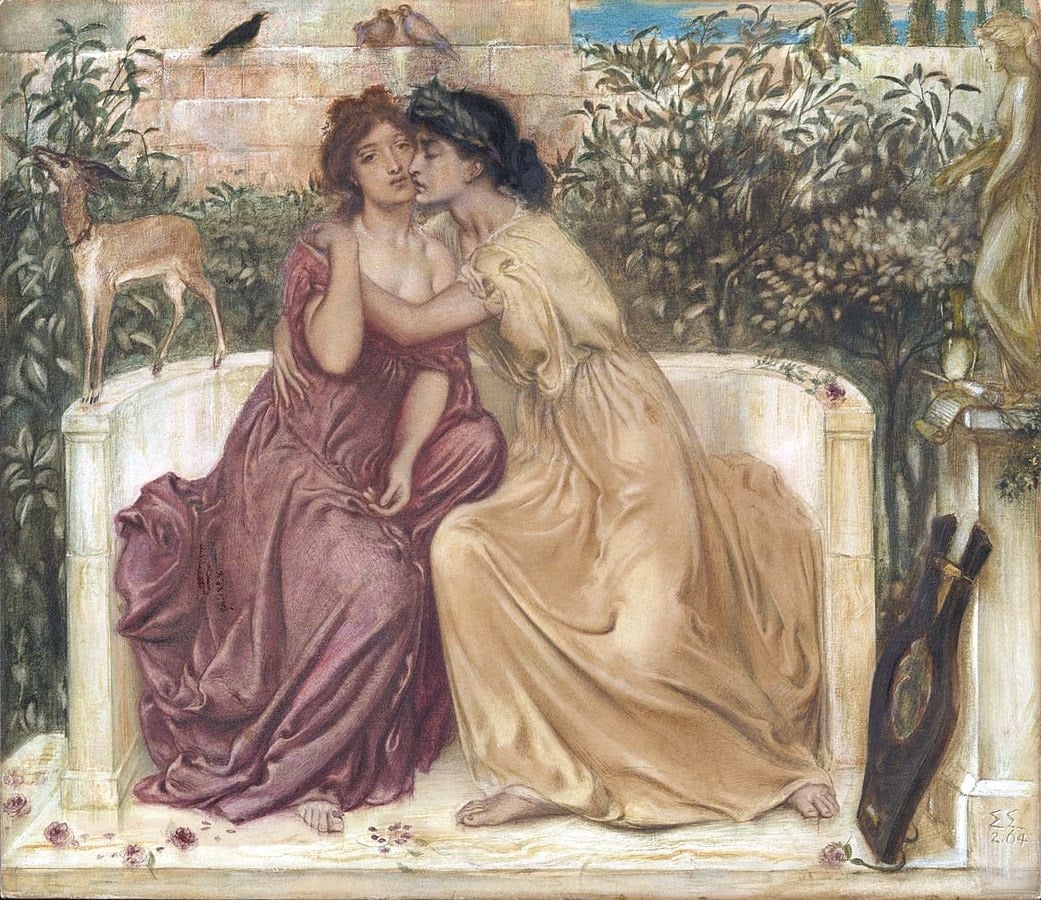Modern English, and indeed many languages, borrow a plethora of words from ancient Greek. One particularly interesting word is “lesbian”, today used to describe a homosexual woman who is attracted to other women, but the root of the word is tied to the Greek island of Lesbos.
“Lesbian” is a demonym for the inhabitants of Lesbos, also spelled as Lesvos, so why does it today describe female homosexuality? The answer is bound to the reputation of the island itself and the written work of an ancient Greek poet named Sappho.
The ancient Greeks themselves would have been confused by the term as it is used today since sexuality in Classical Greece and elsewhere in the ancient world was conceived differently and typically had more to do with one’s romantic role than gender. To answer our question, we must therefore examine how language has evolved over time.
The etymology of “lesbian” and its link to Lesbos
Unsurprisingly, the island did not have an above-average population of women who were attracted to the same sex in ancient times. Rather, the etymology of the word lesbian is linked to one of Lesbos’ most famous inhabitants.
The island was the birthplace of the ancient Greek poet Sappho, who lived around the 6th century BC. Sappho was known for her lyrical poems, many of which have been interpreted as expressing love and desire for other women.
The etymology of the word “lesbian” is therefore commonly attributed to Sappho herself. The word “Sapphic” also refers to feelings of desire between women.
Further explanation
However, Professor of Classical Studies Kate Gilhuly has suggested a more complex explanation.
Gilhuly writes: “Although Sappho’s poetry was well known throughout antiquity, her sexual orientation is not explicitly defined until centuries after her death, and when Lesbos is directly associated with women who love other women in Lucian’s Dialogues of the Courtesans, Sappho is not explicitly named.”
The etymology of the word “lesbian” is therefore commonly attributed to Sappho herself. The word “Sapphic” also refers to feelings of desire between women.
Further explanation
However, Professor of Classical Studies Kate Gilhuly has suggested a more complex explanation.
Gilhuly writes: “Although Sappho’s poetry was well known throughout antiquity, her sexual orientation is not explicitly defined until centuries after her death, and when Lesbos is directly associated with women who love other women in Lucian’s Dialogues of the Courtesans, Sappho is not explicitly named.”
Source: Greek Reporter







